How Everything Everywhere All At Once opens a multiverse of opportunity for Asian filmmakers
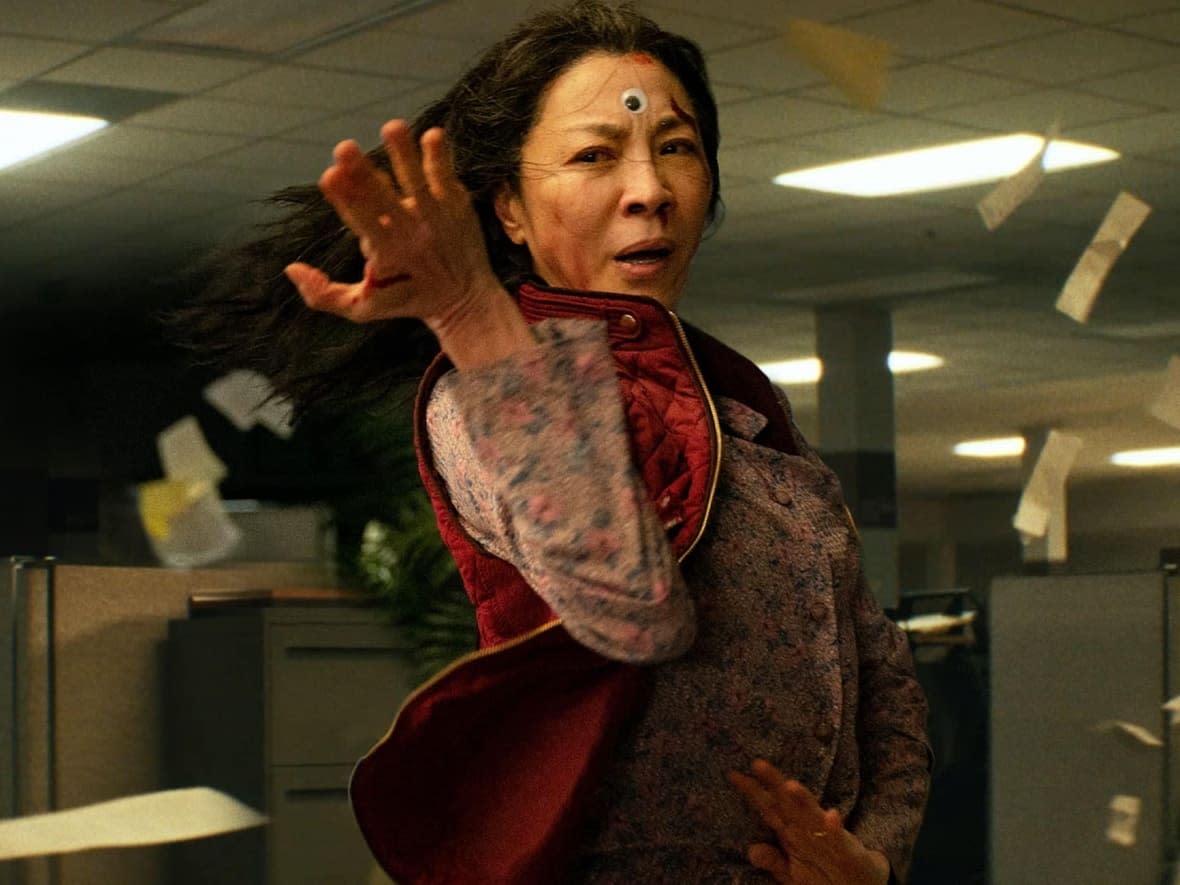
Hayden Szeto loved Everything Everywhere All At Once so much, he couldn't recall the last time he was so excited to bring his friends to the movies — or anyone else.
"If aliens came down to Earth and were like, 'Hey, what's a movie?' I'd be like, show them that one. Show them Everything Everywhere All At Once," said the Vancouver-born actor, best known for his role in 2016's The Edge of Seventeen.
"That's a movie. Like, it encompasses everything that we want in a movie: Heart, action, acting, direction, cinematography, humour, sadness, drama, anything. It's all in one bagel."
It's the darling of the 2023 awards season: Everything Everywhere All At Once is the most nominated film at this Sunday's Oscars (11 nods), and a serious front-runner for best picture, best director, best actress and best supporting actor.
But beyond the wave of accolades, the film's lightning-in-a-bottle success could also mark a watershed moment for Asian representation in Hollywood — and not just a false start, according to Asian Canadian actors, filmmakers and critics who spoke with CBC News.
A turning point for Asian representation
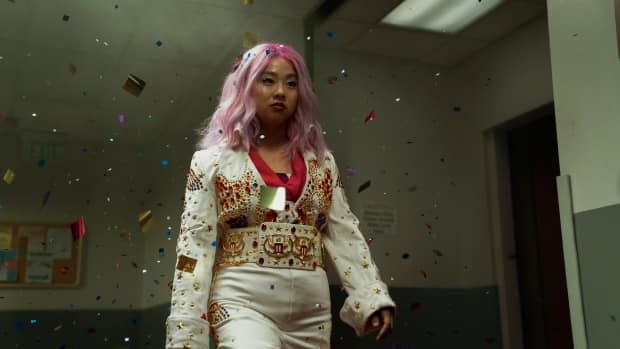
Everything Everywhere tells the story of a Chinese American immigrant named Evelyn (Michelle Yeoh), the co-owner of a laundromat with her husband Waymond (Ke Huy Quan). She has a tense relationship with their daughter Joy (Stephanie Hsu), who wants mom to acknowledge and accept that she is gay. The family is saddled with bills and debt, and the couple is on the verge of divorce — crushed by the reality of the American Dream.
Then Evelyn is pulled into a fantastic multiverse where she discovers that all of existence is threatened. Only she can save it by exploring its dimensions and experiencing the alternate lives that she could have led, including that of a kung fu fighter and a movie star — but she also begins to understand her daughter's despair and her husband's feelings of neglect.
WATCH | The film's success opens a world of opportunities:
Ethan Eng, a 22-year-old Chinese-Canadian filmmaker who co-stars in his directorial debut Therapy Dogs, said that Everything Everywhere All At Once demonstrated that there isn't just a single blueprint for Asian representation in film.
"You can be good, you can be bad, you can be wild. It's a whole universe, you could say, of possibilities and I think that's what freedom of identity is," Eng said.
"What this movie has done, in terms of [showing] a scope of identity and really breaking that open and letting everybody kind of experience that on the big screen — I think it's really special."
A mile-a-minute kaleidoscope of strange characters, high-powered action sequences and silly concepts (hot dog fingers, anyone?), Everything Everywhere's success is a bizarre feat in the current industry landscape, according to Toronto-based film critic Rachel Ho.
But even with its specific, tender depiction of the Chinese American experience, people of all backgrounds have latched onto the universal message of the film, a story of wanting "other people to accept and love what you have discovered about yourself," she said.
Sometimes it can be frustrating when you think that you're on the cusp of change and it doesn't happen. - Rachel Ho
It's not the first time that a movie with a predominantly Asian cast has prompted conversation of change in Hollywood. The 1993 film Joy Luck Club, for example, was supposed to mark a crossroads in Asian representation on screen — "and then nothing happened," Ho said.
"It wasn't until Crazy Rich Asians came out that it just seemed to hit at a time that the world kind of seemed ready for it," she added, as audiences and the industry seek out diverse stories from underheard perspectives, and as immigrant communities continue to grow and establish a diaspora.
"Sometimes it can be frustrating when you think that you're on the cusp of change and it doesn't happen," said Ho. "But I think we're definitely in the midst of it right now."
Leads show challenge for Asian actors in Hollywood
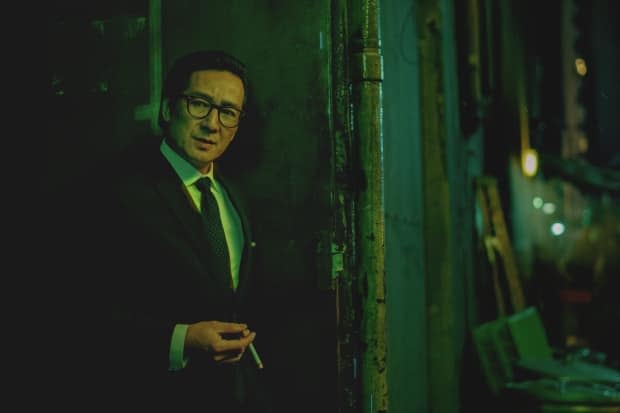
"The result of Everything Everywhere is the culmination of many, many things," said Szeto. When the actor first moved to Los Angeles from Vancouver, his family members worried that there weren't enough roles for Asian-Americans in Hollywood — and encouraged him to go to Hong Kong instead to do kung fu cinema.
"I'm like, you know what, I'm not going to — no. The whole point is to run against the wave," he said. "And you know, I went into this blind.… You just gotta keep running."
Szeto's determination echoes that of Everything Everywhere supporting actor Ke Huy Quan. The Vietnamese American actor had a promising career as a child star in the 1980s, thanks to roles in Indiana Jones and the Temple of Doom and The Goonies.
But the roles dried up, and Quan thought he'd never be an actor again, instead working as an assistant director and a stunt coordinator to stay close to his dream. Until Everything Everywhere came along — now, he'll forever be known as an Academy Award-nominated actor.
His co-star Michelle Yeoh has had a completely different trajectory, as one of the most successful actresses to come out of Hong Kong cinema and its renowned kung fu subgenre.
Translating that success over to Hollywood, however, took a long time — demonstrating the range of barriers that Asian actors face. The actress has spoken candidly about the challenges of working in the U.S., including the racism she experienced, or a dearth of authentic, non-stereotypical roles for Asian women.
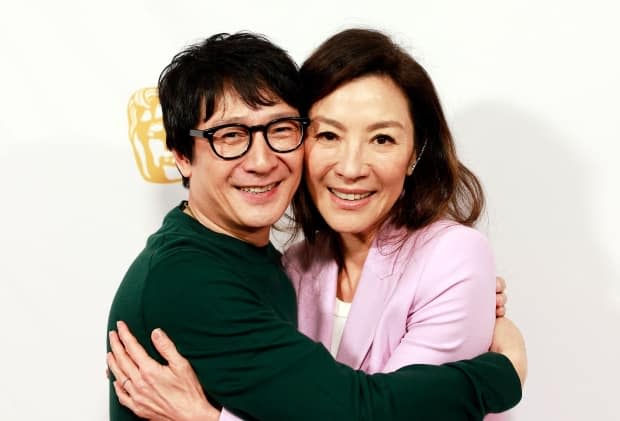
Yeoh and her Hong Kong cinema peers "weren't being offered the roles that they found interesting in Hollywood. They were more stereotypical. They were more kind of just exactly what you would think that they would be offered. Whereas [in] Hong Kong and in mainland China, they're being offered something a lot more interesting," said Ho.
So while Yeoh's recognition in Hollywood is welcome, it wasn't necessary for the success of her career. As the actress said during her Golden Globes acceptance speech, she had a really great run before Everything Everywhere All At Once, but that film was "the best gift."
The success of these two performers might be historical, too: Yeoh, nominated for best actress, could be the first Southeast Asian performer to win in her category, and Quan, nominated for best supporting actor, could be the second-ever Asian performer to win best supporting actor during Sunday's Oscars ceremony.
What more can be done?
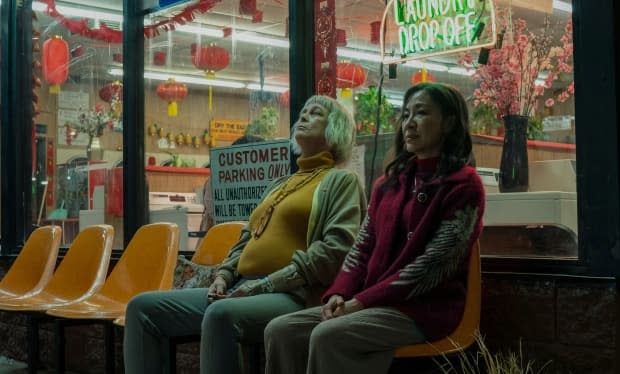
"I don't think we're going to see a slew of movies that are going to be Everything Everywhere All At Once-esque. But I think hopefully the best outcome for this is that we see a slew of movies that are just so fully individual to the person that made it. And I think that's an important thing," said Eng, the young director.
There's still a ton of ground to break, both in Asian and Asian diaspora cinema, says Ho. The latter category has seen several recent successes, like 2020's Minari, about a South Korean family who immigrate to North America in the 1980s, or 2019's The Farewell, about a Chinese American woman's relationship with her ailing grandmother, whose cancer diagnosis is known to everyone in the family but her.
"I think there's always more to be done and I'd love to see more, particularly more of the diaspora," she added. "It's nice to see that we're kind of getting into the arts a little bit more and we have our own stories to tell and they're not necessarily always the sad, challenging immigrant story."
Szeto said he's glad the movie did what it did: "Everybody had an arc. Nobody was perfect. And it happened to be an Asian American family, a Chinese American family," he said.
"You just happen to have these shepherds of this story be Asian, and you don't think about it."


